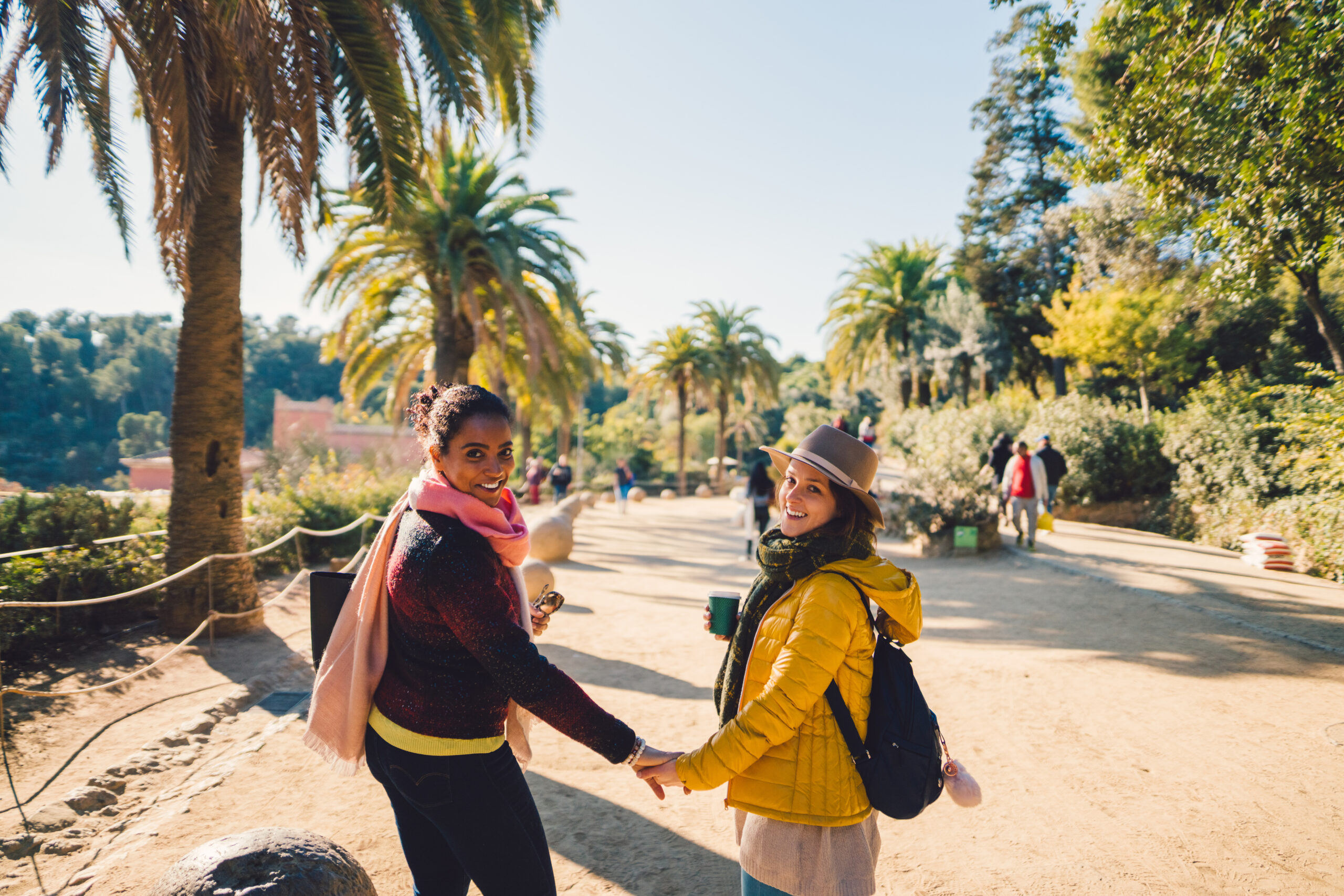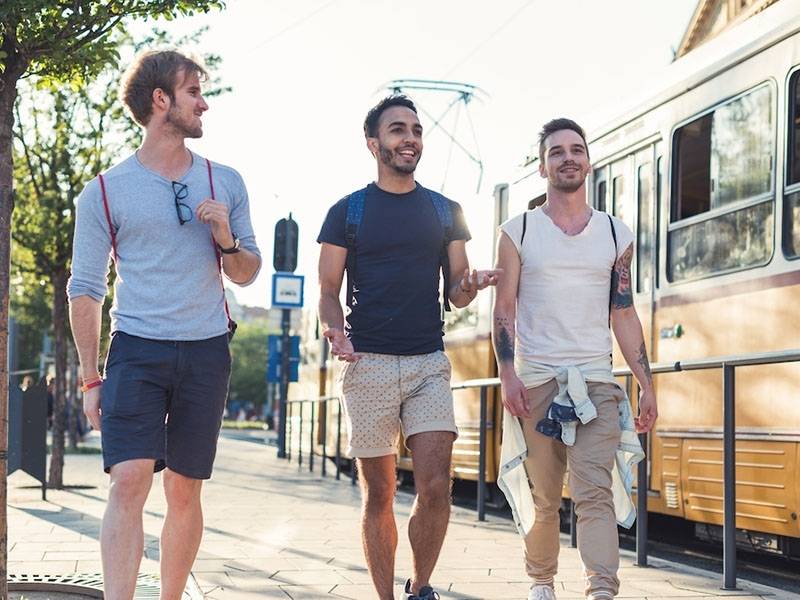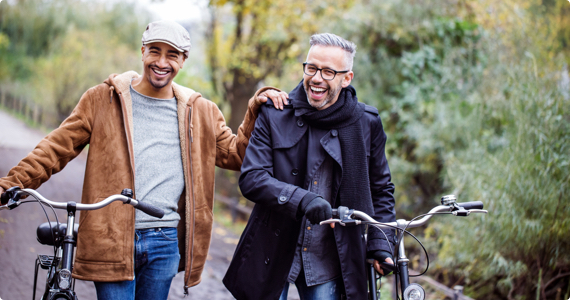Tips, Treasures and Safety Measures for LGBTQ+ Travelers
By Ashley Rogers
In his beloved children’s book, Oh, the Places You’ll Go, Dr. Seuss delighted in presenting the joy of exploration, of seizing new opportunities, and living with pride, despite life’s hurdles. For the LGBTQ+ community, traveling is a bit like Seuss’s message … it isn’t always easy, but the rewards are well worth the effort, and stumbling blocks can be turned into building blocks, with understanding, respect, compassion and preparation.
According to the International Gay and Lesbian Travel Association (IGLTA) world maps, there are still more than 70 countries that criminalize same-sex relations, with punishments ranging from discrimination, humiliation, stoning and imprisonment, to the death penalty.
In the United States, in June 2023, the Human Rights Campaign officially declared a “State of Emergency” for the first time in its 40 year history for LGBTQ+ people traveling to the US, after more than 525 anti-LGBTQ+ bills were introduced in 41 states, with 75 already having passed in 2023.
Despite these grim statistics, the LGBTQ+ travel industry has grown enormously in recent years, becoming one of the most lucrative segments in this category, according to Skift, a leading news outlet for the travel industry. The key to safe travel, inclusive experiences, and once-in-a-lifetime adventures, is extensive research and preparation, say the experts.
It’s not always easy to prioritize safety, while advocating for equality and respect. “LGBTQ+ individuals certainly have unique considerations while traveling, with 82 percent of the LGBTQ+ traveling community having faced unnecessary barriers including discrimination while traveling,” says Matthieu Jost, founder and CEO of Misterb&b, the world’s largest travel and social network. Misterb&b offers vacation and business travelers over 1 million LGBTQ+ owned rooms, apartments, or LGBTQ+-friendly hotels in 200 countries. (https://www.misterbandb.com)

“As an LGBTQ+ traveler, it’s incredibly important to research the area you’re planning to travel to ahead of time so you can be aware of any safety concerns or cultural nuances,” says Jost. “While it’s extremely unfair, there are certain sets of rules that must be abided by when traveling to places that are not historically welcoming to LGBTQ+ individuals.”
The Misterb&b blog features tips for traveling safely as part of the LGBTQ+ community, including gay travel guides and roundups of the safest travel destinations for LGBTQ+ individuals, aids in choosing the right destinations and accommodations and educating travelers on the cultural implications and norms for the queer community in that area. The portal also helps to connect travelers with other LGTBQ+ visitors and locals from the countries they are traveling to.
In June 2023 Misterb&b also launched a new travel app, Weere. “The Weere app was developed with the aim of empowering LGBTQ+ travelers and addressing the specific needs of solo travelers within our community. We recognized that 70 percent of our users are solo travelers, and we wanted to provide them with a platform where they could not only plan trips but also meet and connect with other travelers,” says Jost. “In a time of anti-LGBTQ+ legislation, travel advisories in places like Florida, and increased discrimination it’s more important than ever to create safe and welcoming experiences for LGBTQ+ travelers. Weere means finding community and fighting loneliness during hard times through travel,” he adds.
The IGLTA (The International LGBTQ+ Travel Association–https://www.iglta.org) offers free comprehensive travel and safety guides, along with country destination information, according to its President and CEO, John Tanzella. “Our website features resources that cover LGBTQ+ travel tips, local customs and laws, safety advice and recommendations for LGBTQ+ welcoming businesses and accommodations. We aim to equip travelers with the necessary tools to make informed decisions and ensure their safety and well-being while exploring the world.”
Members of IGLTA, founded in 1983, include LGBTQ+-friendly accommodations, transport, destinations, and service providers, travel advisors, tour operators, event coordinators and travel media located in more than 80 countries.
Anuja Agrawal is the co-author of Check-Up, Check-In: Why Business Travel Strategies Should Prioritize Employee Health and Wellness. Agrawal is also the founder/CEO of Health Flights Solutions. She agrees that it is crucial to research the legal landscape and social attitudes towards LGBTQ+ individuals before traveling.
“LGBTQ+ travelers should be aware of cultural norms and sensitivities in their destination country, including local customs, traditions, social expectations, or any specific cultural considerations or practices that might impact their experience, such as dress codes, public displays of affection, or gender expectations,” says Agrawal.
“LGBTQ+ travelers should also research LGBTQ+-friendly accommodations and establishments, and familiarize themselves with emergency contacts, including local LGBTQ+ organizations or support groups, as well as embassy or consulate information. In the event of an emergency or safety concern, knowing where to turn for assistance can be invaluable.”
Safety and logistical concerns are particularly difficult for transgender people traveling abroad, as their legal documents may not match their outward appearance, and discrimination and public humiliation have been reported across international borders. To confront these challenges, transgender travelers should consider updating their passports with current information including their names, photos, and gender identites. Obtaining a letter from a therapist or medical doctor translated into the local language is also a good precaution.
An additional problem for trans travelers, as explained by The National Center for Transgender Equality, is TSA inspectors who do not recognize the X gender designations and conduct intrusive body searches. Using full body scanner, the inspectors can also see—and often ridicule—binders, packers, wigs, and breast forms. Any of these things, while completely legal, may attract unwelcomed attention, harassment, and can lead to increased scrutiny and embarrassment, say trans travelers.
Transgender individuals taking gender-affirming, PrEP or HIV medications may also not be able to access these meds in their destination countries, so it’s critical to take enough to ensure health safety. For more information on traveling with medications see Harvard’s Global Support Service (https://www.globalsupport.harvard.edu/travel/advice/tips-traveling-medication).
Anyone with medical conditions or concerns about health, accidents, or medical emergencies while traveling should also research local hospitals and clinics to make sure they are LGBTQ+-friendly and to see what is available in case an unexpected incident occurs.
While tourists, historically, are easy marks, LGBTQ+ travelers are an even more vulnerable target. Entrapment campaigns using social media and apps, catfishing, meeting new “friends” in isolated areas, openly using dating apps or showing your phone to a stranger, may all turn your vacation into a nightmare if precautions are not taken.
Resources that can help assess the legal, cultural and social climate of travel destinations for LGBTQ+ travelers include the ILGTA’s “State-Sponsored Homophobia” annual report that provides detailed information on the legal status of same-sex sexual activity, protection against discrimination, recognition of same-sex relationships, and other LGBTQ+-related issues.
The ILGTA’s annual world report and map highlighting legislation that criminalizes or protects people based on their sexual orientation or recognizing their relationships is a great resource, as are the Spartacus Gay Travel Index, and Ecualdex LGBTQ Travel Guide, a crowd-sourced knowledge base for LGBTQ+ travelers.
Other resources include the US State Department travel advisories and annual human rights reports, which include details on LGBTQ+ rights in countries around the world. International SOS provides, country guides, available in their Assistance App, and security professionals are available to speak to travelers 24/7 through their Global Emergency Response Program. LGBTQ+ travelers may also want to check the CIA Factbook, ILga.org, the Overseas Security Advisory Council, and limitless apps and country specific websites devoted to LGBTQ+ travelers.
Before leaving home, experts agree that registering with the US State Department is another way to protect your security. The Smart Traveler Enrollment Program (STEP) is a free service that allows U.S. citizens and nationals traveling abroad to enroll their trip with the nearest U.S. Embassy or Consulate.
Acquiring travel insurance is also recommended. IGTLA’s CAP and Seven Corners specifically cater to the LGTBQ+ community.
ManAboutWorld, a digital magazine for LGBTQ travelers has produced an – a free 44-page manual – which is also an important read. (https://www.manaboutworld.com/wp-content/uploads/2018/01/LGBTQ-Guide-to-Travel-Safety.pdf ).
This comprehensive report reminds travelers “The issue of safety always goes beyond LGBTQ rights to the much broader topic of human rights. You will enter these countries with a responsibility to be mindful of their citizens, as well as the circumstances of their lives, and to respect the local culture and be Ambassadors for your own LGBTQ+ community.” Also, remember when tourists leave, local LGBTQ individuals may feel the repercussions of any inappropriate actions initiated by queer travelers.
While LGTBQ+ traveling is not without its concerns, if you prepare well and respect your chosen destination, the trip of a lifetime awaits. And, as Dr. Seuss says, “Congratulations! Today is your day. You’re off to Great Places! You’re off and away!”
And now, that you’re prepared to travel safely, in our next issue, we’ll look at some of the great, welcoming, and exciting destinations that will be ideal for the LGBTQ+ traveler.

In the Event of Trouble
Even if you’re the most law-abiding citizen at home, social, legal and cultural missteps in a foreign country can result in discrimination, violence and even arrest. Writer Anuga Argewal and travel blogger Lucy Taylor have these tips for LGBTQ+ travelers who find themselves in dangerous situations.
Seek Safety: The immediate goal should be to prioritize safety. If you are in imminent danger, contact local authorities, emergency services, or your embassy or consulate.
Contact LGBTQ+ Support Organizations: LGBTQ+ travelers can reach out to local LGBTQ+ support organizations for guidance, resources, and assistance.
Contact Human Rights groups, or legal professionals who specialize in LGBTQ+ rights for support and advice.
Document the Incident: Document any incident of discrimination, harassment, or violence, including taking photos, writing down details, and collecting any evidence. Documentation can be crucial for reporting the incident and for seeking legal assistance.
Don’t Always Trust the Police: Police can be insensitive to or hostile toward LGBTQ+ individuals. In some parts of the Middle East and Africa, police use a fake Grindr, Facebook or other social media apps to lure, rape, abuse or arrest LGBTQ+ individuals. Never unlock a smartphone or provide passwords to anyone.
Don’t Give Too Much Information: If you can’t imagine what crime you’ve committed, you may try to talk yourself out of an arrest. Until you know why you’re being detained, you should keep quiet.
If Arrested, Ask About Your Rights: Always ask that you be told your rights in a language you understand. Your rights will vary from country to country. Also clarify the reason for an arrest.
Don’t Sign Anything: Sometimes, due to corrupt police practices, people have been arrested and then encouraged to sign a document in a language they don’t understand. Don’t sign anything until you have a translator or translated copy of the document in front of you. Only sign a translated copy.
Call Your Family or Friends: If you’ve been arrested you need to notify someone in your family or family of friends. Tell them where you are being detained and on what charges. You should also give them contact details for your lawyer so they can stay informed.
Access Counseling and Support: After dealing with traumatic experiences, consider counseling or therapy to address any psychological or emotional challenges you may face following such anti-LGBTQ+ incidents.










More Stories
A LOVE LETTER TO CONNECTICUT –WINVIAN FARM – An Inclusive Relais & Chateaux Resort With Heart, Soul, Sophistication and Whimsy
THE HOMESTEAD—A Place to Unwind In Madison
“Oh, the Places You’ll Go!” Part II: LGBTQ+ Top Travel Destinations, Danger Zones, and Experiences to Treasure